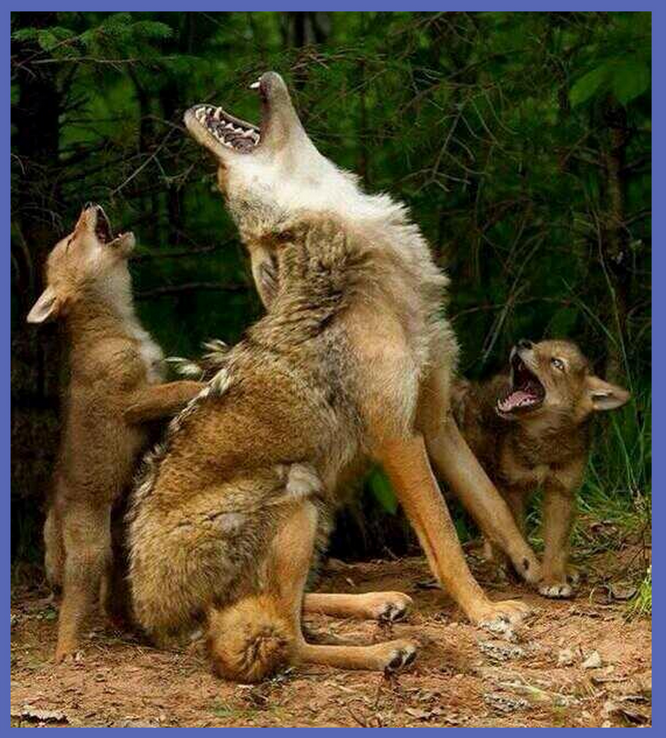I love wolves just about as much as I love tigers. They are the ancestors of all breeds of dog. We once owned a German Shepherd who was a truly amazing creature.
Our family will never forget her, her puppies and the impact she had on our family.
She was about as close to owning a wolf as I will ever come.
Incredibly intelligent, intuitive and highly protective of all of us. Enjoy the documentary!
WOLF howls mark stressful scenes in any number of mountain dramas and horror movies. But European zoologists have found that the animals howl to keep in touch with their friends, not because the adrenalin is pumping.
Experiments revealed that the centre’s wolves rarely howled when one of the pack was moved out of sight into a nearby holding pen. But they almost always howled when handlers took one of the group for a long walk on a lead – particularly if it was a partner or pack leader.
While this could indicate the animals were stressed by the absence of key companions, saliva tests revealed no link between the amount of howling and levels of the stress hormone cortisol.
The findings reinforce theories that vocal production in animals is not “hardwired”, according to a report today in the journal Current Biology.
Scientists have long debated how
much control animals have over the sounds they make. Marmots and macaques have
been shown to make fewer “alarm calls” if levels of certain hormones are
reduced, suggesting the calls are automatic responses to physiological
changes.
But studies on monkeys and meerkats found that they called less when they were alone, while male chickens stopped calling completely when all of the females in the group had responded. Such studies suggest “fine-tuned communication”, today’s paper says.
Co-author Friederike Range, of the University of Vienna, said howling was more a reflection of wolves’ social relationships than their emotional states. “(It) may be used to maintain contact and perhaps to aid in reuniting with allies,” Dr Range said.
By John Ross
With many thanks to The Australian for story and top picture.
Other picture credit MoviewriterNY
But studies on monkeys and meerkats found that they called less when they were alone, while male chickens stopped calling completely when all of the females in the group had responded. Such studies suggest “fine-tuned communication”, today’s paper says.
Co-author Friederike Range, of the University of Vienna, said howling was more a reflection of wolves’ social relationships than their emotional states. “(It) may be used to maintain contact and perhaps to aid in reuniting with allies,” Dr Range said.
By John Ross
With many thanks to The Australian for story and top picture.
Other picture credit MoviewriterNY
Mother wolf teaching her cubs how to howl.


